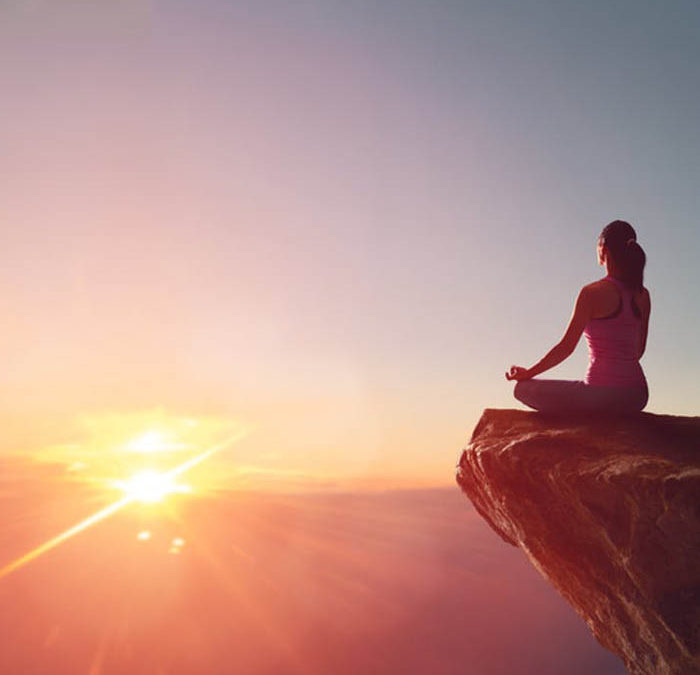Occasionally here at Skillful MIND we will be sharing articles contributed by some of our wonderful SkillfulMIND Meditation Leaders.
Many of our leaders have their own businesses and and work in fascinating sectors. All of them have such interesting stories, and during this time of lock-down around the world, we thought it would be wonderful to hear from some of them on subjects of their choosing.
This week we have an article on the negative connotations which tend to follow mental health, and why it is so important to remove these stigmas.
Written by Ann Gallagher, a Skillful MIND Meditation Leader of three years, we look forward to hearing what you think!
There is no doubt that many of you know the importance of good mental health, but in a time like this, what actually is considered to be good mental health?
Many people, from social media influencers to life coaches, personal trainers and spiritual guides will say it has a lot to do with your mindset and having a positive attitude. While this is true, an important side can sometimes be neglected; sometimes we have bad days.
A common response when people have these days is “chin up, it gets better”, or “there are people worse off than you” or even, “it’s okay not to be okay”. And while these can be very useful at times, I prefer to use the saying, “have your down day, but please don’t stay there”.
Looking after your mental health can be hard work and for some, it can be extremely overwhelming. For some people their days are more bad than good. People are so busy in their own lives that for someone who is not having a good day, it can feel like they may be disrupting their friends if they try to explain how they are feeling. This can often lead to a general response when someone asks how they are going – often simply being “I’m fine”, when that is not the truth.
Social media is often flooded with words, especially when there is a mental health day approaching. News feeds flood with people posting comments like ‘my door is always open’, ‘I am here if you need’ and so on. These are great sentiments, and I have no doubt most people are genuine when they write that.
I work as a carer of people with mental health issues and I see that a person suffering will most likely not want to walk through that door. So, while the sentiment is lovely, it’s not always that useful.
In an ideal world what would be useful would be to see society allowing for the negatives and down moments in life, for them to be seen as the ‘norm’. For example, if someone unexpectedly bursts into tears, they wouldn’t get rushed behind closed doors – out of sight. Or, people wouldn’t be judged and ridiculed for having these feelings, but just receiving kindness, compassion, love and understanding.
As humans, we cannot always be positive and upbeat, it just isn’t possible. While no one wants to have them, part of being human is also experiencing hard times. It’s these experiences of hurt that we hide away from the world, from our friends, from our networks and sometimes even from our families.
I can see that this mentality of hiding things away is improving. I know that the world and society is beginning to embrace mental health more and more; gaining insight and understanding. The generational thinking that ‘boys don’t cry’ or that they need to toughen up, is slowly dissipating. We are coming to understand just how much our emotions affect our body and how, in turn this can lead to illness.
It is here where I wonder how long before society stops pushing the illusion of being positive and happy all the time. I have learnt in my many years of watching loved ones battle with the beast that is depression, to strive for contentment. At times for my loved one’s happiness can seem to be an illusion. We need to understand that it is necessary to experience the negative, so that we know just how good the good actually is.
While it certainly isn’t easy to do, it is necessary. To have the ability to sit with sadness, fear, grief, anger, frustration and all the emotions we tend to push down and move on. It is uncomfortable, confronting and painful. The more you are able to sit with these emotions, the better understanding you have of what they mean for you.
I would love to see the world view the experiences as just that, without the label of positive or negative, and all just learning. However, I think I may just be pushing my luck a little too far for that at the moment!
So, I have spoken about good mental health, but what is that? For me, it is balance. Good mental health is being able to manage the days where you are not coping as well as usual. It is knowing that it is normal for this to occur and managing those emotions so that you don’t end up dealing with poor mental health.
What this balance is, I cannot give you a definitive answer, as it looks different for everyone. Some people manage with pampering and self care, while some need physical exercise and some need wallowing in sadness for a few days. The key is finding what it is for yourself and even then, you may need guidance to help you find what that is.
Personally, I am an avid believer in meditation. This in itself is also something that is very different for everyone as meditation is such a personal journey. People meditate in various ways for various reasons. With so many different apps and ways being promoted for wellness, even meditation can be very confusing. People see it as chanting, breathing exercises or sitting in silence. While these are forms there are so many ways to meditate – it can be religious, spiritual or mindful.
As a certified meditation leader with SkillfulMIND, I have heard all the reasons (or excuses) as to why people don’t choose to use this in their own lives. Personally it’s a superpower for me. I have what many people would consider a rather stressful life and yet I do not feel stressed. This is my way of looking after my own mental health, it is what works for me.
A common barrier I hear from many people is ‘my mind doesn’t stop. I have tried meditation and it doesn’t work’. Finding a meditation suitable is key and once a style has been found, I honestly believe you too will be someone that uses meditation regularly.
The benefits of it are truly amazing and many scientific research papers have been conducted to prove the validity. If it is something that sparks an interest, look to find a meditation class/session to try out. In my experience classes are a great starting point for a number of reasons:
– Finding people in similar situations to you
– Being able to share and talk about your experiences of meditation
– Tips and ideas of how to manage private meditation at home
– Making new, like-minded friends
– Learning!
By all means give it a go, it will help you in creating good mental health and dealing with those tricky emotions that surface on bad days
 My name is Ann Gallagher and I am the owner of Heron Alternative Therapies.
My name is Ann Gallagher and I am the owner of Heron Alternative Therapies.
I am a Reiki Master, Holistic counsellor, Skillful MIND Meditation Leader and Card reader.
I work for Headspace National as a Family and Friends Reference Group member and am currently studying Diploma of Mental Health.
Netball President and Coach.
Mother of two who have been dealing with various mental health issues for 5+ years.
I can be found on Facebook and Instagram and my website
